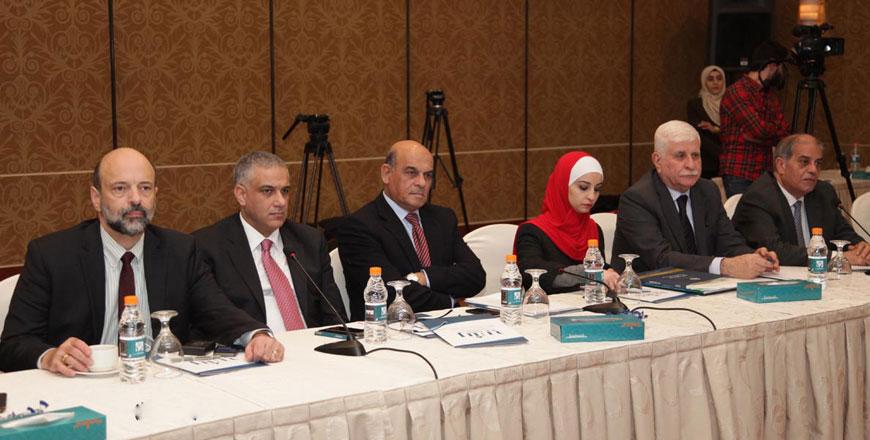You are here
Jordan’s ranking improves in corruption index
By Dana Al Emam - Dec 04,2014 - Last updated at Dec 04,2014
AMMAN — Jordan’s ranking and score in Transparency International’s 2014 Corruption Perceptions Index has recorded an improvement compared to last year.
Jordan, along with Bahrain, Lesotho, Namibia, Rwanda and Saudi Arabia, ranked 55 among 175 countries in the index, scoring 49 out of 100, while last year, the Kingdom ranked 66 among 177 countries and territories, scoring 45 out of 100.
In the same index, which measures the perceived levels of public sector corruption, Jordan, along with Bahrain and Saudi Arabia, ranked fourth among countries in the Middle East and North Africa region, following the United Arab Emirates, Qatar and Israel.
Denmark ranked first with a score of 92, while Somalia and North Korea were at the bottom of the list, scoring eight out of 100.
Commenting on the index, which was issued on Wednesday, Anti-Corruption Commission (ACC) President Samih Bino attributed Jordan’s “success” to “genuine political willingness to fight corruption”.
“All authorities, legislative bodies, media outlets and governments are moving in the right direction in fighting corruption,” Bino told The Jordan Times over phone, adding that Jordan’s progress in the index should encourage foreign businesses as well as international aid agencies.
On the other hand, political observer Bassem Sakijha said the fight against corruption has “actually regressed when compared to the situation seven or eight years ago”.
“Jordan did not even reach the passing score out of 100, which is 50 points,” the former member of the Royal Committee for Enhancing the National Integrity System told The Jordan Times over the phone, attributing the “decline” to a lack of effectiveness and seriousness in the process of fighting corruption.
Sakijha noted that Jordan was the first Arab country to sign and ratify the UN Convention against Corruption but was not able to implement its provisions, adding that the authorities responsible for fighting corruption have not been able to commit to the timeline of the recommendations of the Royal committee.
Meanwhile, Bino cited the political instability in the region as an obstacle in fighting corruption, as well as the country’s “limited” financial abilities.
He said the ACC will start implementing the second pillar of the 2013-2017 national anti-corruption strategy, which seeks to promote preventive measures and spread awareness against corruption by reaching out to schools, universities and religious leaders.
The official noted that the ACC seeks to activate internal monitoring units at public institutions as the first defence against corruption, adding that the commission will issue a detailed report of this year’s corruption cases early next year.
Related Articles
AMMAN — Jordan’s performance in Transparency International’s 2015 Corruption Perceptions Index has registered an improvement compared to las
AMMAN — Jordan should seize the opportunity of its improved performance in the Corruption Perceptions Index to push for applying better anti
The Anti-Corruption Commission (ACC) on Saturday said it will reveal a “new” corruption case in the next few days.

















